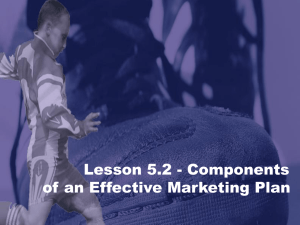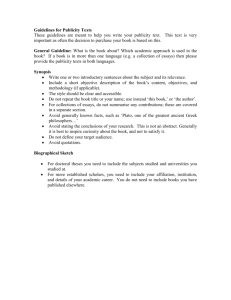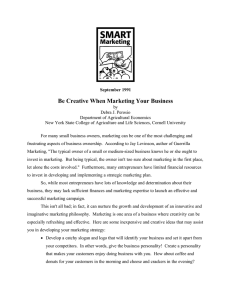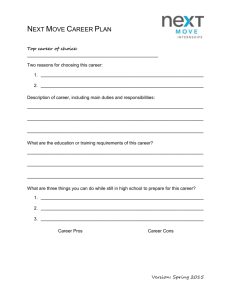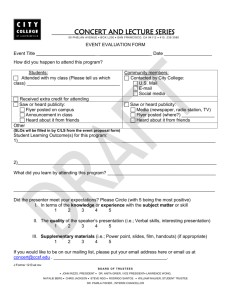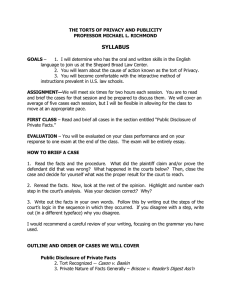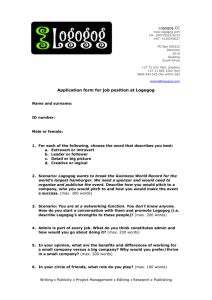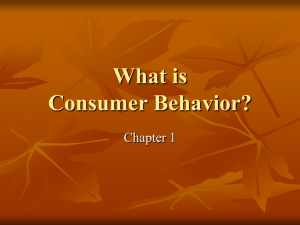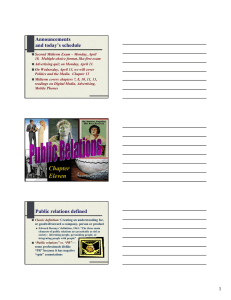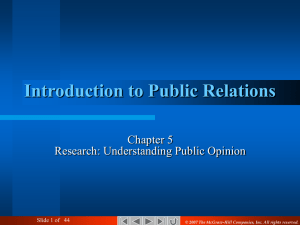Document
advertisement
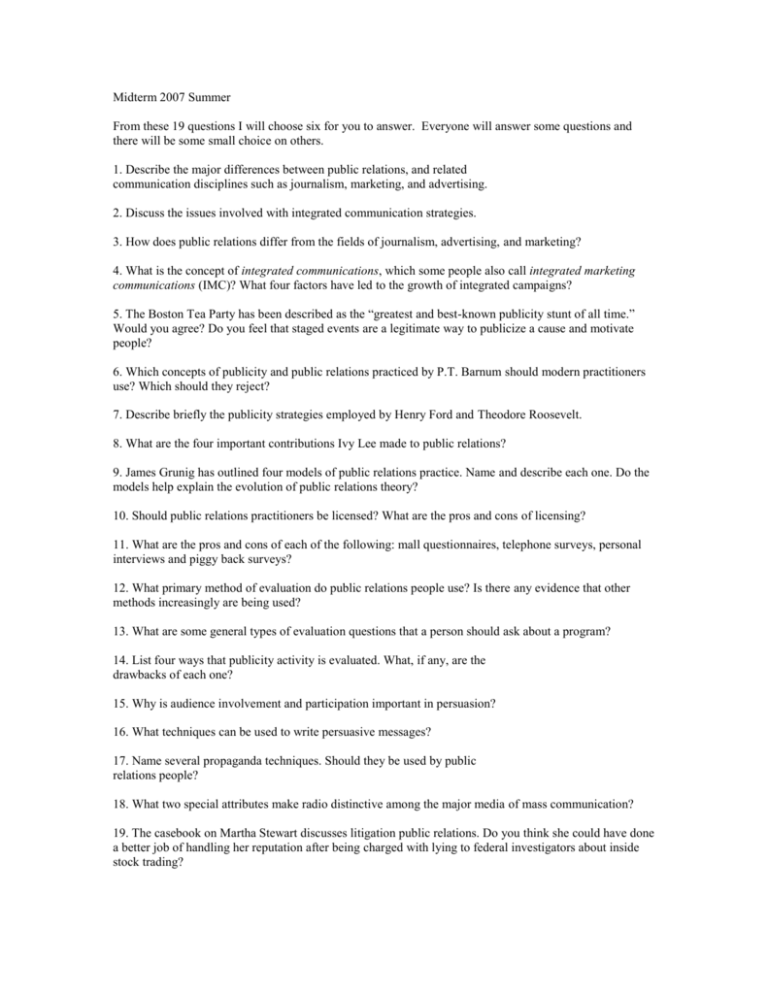
Midterm 2007 Summer From these 19 questions I will choose six for you to answer. Everyone will answer some questions and there will be some small choice on others. 1. Describe the major differences between public relations, and related communication disciplines such as journalism, marketing, and advertising. 2. Discuss the issues involved with integrated communication strategies. 3. How does public relations differ from the fields of journalism, advertising, and marketing? 4. What is the concept of integrated communications, which some people also call integrated marketing communications (IMC)? What four factors have led to the growth of integrated campaigns? 5. The Boston Tea Party has been described as the “greatest and best-known publicity stunt of all time.” Would you agree? Do you feel that staged events are a legitimate way to publicize a cause and motivate people? 6. Which concepts of publicity and public relations practiced by P.T. Barnum should modern practitioners use? Which should they reject? 7. Describe briefly the publicity strategies employed by Henry Ford and Theodore Roosevelt. 8. What are the four important contributions Ivy Lee made to public relations? 9. James Grunig has outlined four models of public relations practice. Name and describe each one. Do the models help explain the evolution of public relations theory? 10. Should public relations practitioners be licensed? What are the pros and cons of licensing? 11. What are the pros and cons of each of the following: mall questionnaires, telephone surveys, personal interviews and piggy back surveys? 12. What primary method of evaluation do public relations people use? Is there any evidence that other methods increasingly are being used? 13. What are some general types of evaluation questions that a person should ask about a program? 14. List four ways that publicity activity is evaluated. What, if any, are the drawbacks of each one? 15. Why is audience involvement and participation important in persuasion? 16. What techniques can be used to write persuasive messages? 17. Name several propaganda techniques. Should they be used by public relations people? 18. What two special attributes make radio distinctive among the major media of mass communication? 19. The casebook on Martha Stewart discusses litigation public relations. Do you think she could have done a better job of handling her reputation after being charged with lying to federal investigators about inside stock trading?
